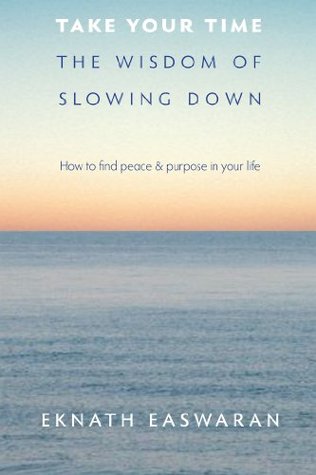More on this book
Kindle Notes & Highlights
Patience is one of life’s unsung virtues. When people write about love, they use capital letters, italics, and calligraphy; everybody gives love the red-carpet treatment. But where patience is concerned, who cares? Nobody writes poems about patience. There are no popular songs about it. If the word does make an appearance, it is only because it contains two syllables and fits the meter. This is unfair, because patience is the very heart of love. I don’t think any skill in life is more valuable. Patience is the best insurance I know against all kinds of emotional and physical problems – and it
...more
For students, the practice of one-pointed attention is essential. Complete concentration is necessary for learning. But go to any university and see how many students are doing two or more things at a time – listening to music, drinking coffee, smoking, talking, and then trying to study at the same time. When the time comes for a grade, they are likely to get Incomplete – a grade that seems perfect for divided attention.
Most of us are like this. We have energy for activities that interest us, but when that energy is blocked it flows elsewhere, to something more attractive. We get busy doing those other, more attractive things and can’t find time for what needs doing. In India we call this “painting the bullock cart wheels.” Just when the harvest is ready to be brought in, the farmer notices that the wheels of his bullock cart are looking rather shabby. Instead of going out into the fields, he takes a day to go into town for paint and then spends a week painting beautiful designs on the cart wheels. When he
...more
Students often grind to a halt on the eve of finals and find it physically impossible to open a book. I have seen students dismantling their motorcycles the night before exams, which calls for a lot more energy and application than the study of Wordsworth’s “Ode to Immortality.” This is a valuable clue: the problem is not lack of energy, but how to control and direct it.
When you live in balance, you are in joy always – not joy in the sense that things always take place in the way you want, but because you are never disturbed and have a quiet confidence in yourself that cannot be shaken. It is one of the fallacies in our modern approach to life that we believe we can be happy only when everything takes place exactly as we want. Actually, I would say that it’s a good thing life doesn’t work that way. Sometimes the best things in life are not what we thought we wanted at all, and the unpleasant experiences are what helped us grow. When your life is in balance,
...more
Autotellers, telephones, fax machines, and computers are unquestionably useful, but they are not fundamental. The real essentials of life are compassion, kindness, good will, and forgiveness. It is qualities like these that are fundamental to living as a true human being – and that is where our age lacks a great deal.
My observation, after many years of meditation, is that most problems are much smaller than we think. It is by dwelling on them, brooding on them, feeding them with our attention, that we make them bigger and bigger. When we learn to direct our attention to something positive, the problem often shrinks to its proper size, making it much easier to deal with –and much less intimidating, too.
Mahatma Gandhi, who called himself a practical idealist, said that he wanted to live in peace not only with his friends, but with his enemies also. He knew that there were people who disliked him and opposed him, but he wanted to be able to love and respect them. This is a sound approach to life. When you allow yourself to dislike someone, your peace is disturbed – not their peace of mind but your own. Tragically, we are bound to those people we dislike and shackled to those whom we hate.
The Eight Point Program: An Overview 1. Meditation on a Passage Silent repetition in the mind of memorized inspirational passages from the world’s great religions. Practiced for one-half hour each morning. 2. Repetition of a Mantram Silent repetition in the mind of a Holy Name or hallowed phrase from one of the world’s great religions. Practiced whenever possible throughout the day or night. 3. Slowing Down Setting priorities and reducing the stress and friction caused by hurry. 4. One-Pointed Attention Giving full concentration to the matter at hand. 5. Training the Senses Overcoming
...more


